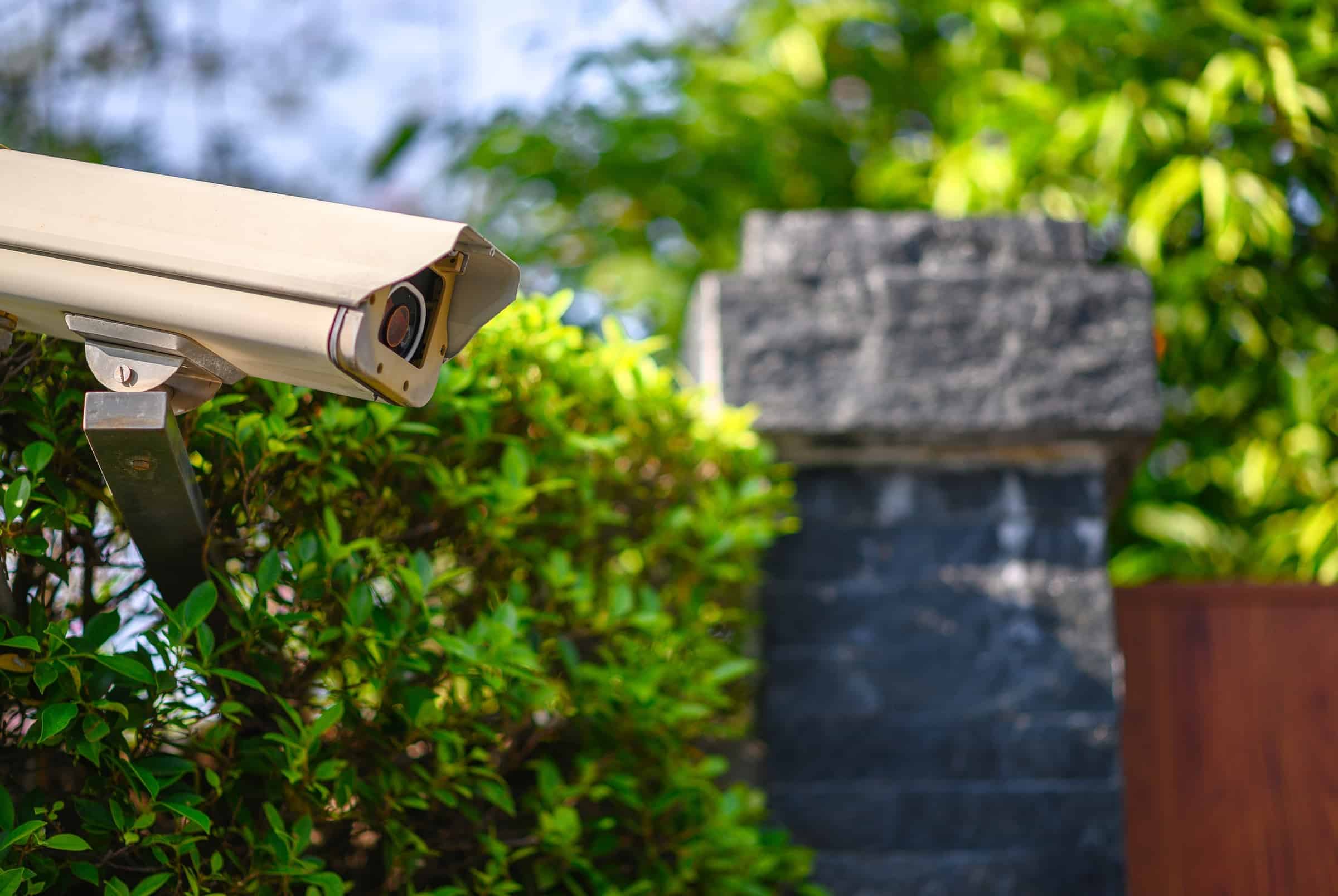
One of the very few positive statistics to come out of the coronavirus pandemic is crime reduction. Figures from the UK’s Office of National Statistics (ONS) show a significant drop in crime during the pandemic’s peak. This drop is partly down to a reduction in theft offences, particularly domestic burglary and personal property theft.
The increase in time that people are spending at home reduces the opportunity for thefts, as does most retail stores’ closure.
Despite recent drops in crime, the demand for home CCTV and doorbell cameras for residential security is still vastly increasing. Please watch the video below or read on to learn about the legalities of residential security cameras in the UK.
Doorbell cameras continue to outsell more sophisticated home CCTV systems because of their simplicity, cost, and the homeowners’ ability to install and operate the device quickly, and easily themselves.
Most of the doorbell CCTV cameras rely on a wifi connection. Users should take precautions such as the use of strong passwords to avoid hackers breaching wifi security.
Unfortunately, the obligations of users of doorbell cameras and home CCTV systems do not end there.
Any device that records images of the public or public areas may be subject to data protection laws. These laws include doorbell cameras and home CCTV systems that capture images of people walking past a property on public highways or land.
For example, a homeowner that has a camera covering their front door which also captures the street and people walking past the property (private & domestic) but outside of the property boundary, will be subject to the Data Protection Act 2018 (DPA) and the General Data Protection Regulations (GDPR).
Failure to comply with the data regulations may result in regulatory action by the Information Commissioners Office (ICO).
The DPA also includes laws that apply to the storage of information. It also prevents the misuse of personal data by placing legal obligations on anybody who handles the information.
Capturing and recording images of the general public outside of your boundary does not breach the law. However, CCTV users must ensure that they comply with the rules.
The ICO (The Information Commissioners Office) is the independent regulatory office in charge of upholding information rights in the public’s interest. The organisation covers the Data Protection Act, the Freedom of Information Act, and the Privacy and Electronic Communications Regulation. And it is under the Human Rights Act that most CCTV owners will fall foul, specifically the invasion of one’s privacy.
The GDPR initially were the UK’s implementation of EU law on data protection and privacy. They also address the transfer of personal data outside of the EU and EEA. (European Union and European Economic Area). Following Brexit, the GDPR laws are still in place but now called “UK GDPR”.
Failure to comply with data protection laws can make one subject to enforcement action by the ICO, resulting in a substantial fine. You may also be subject to legal action by the affected individuals. However, in most neighbour/CCTV disputes, the ICO will not consider or proportionate to take enforcement action against the CCTV owner/user.
Having a camera pointing directly at your neighbour’s window becomes an invasion of privacy which falls under the Human Rights Act 1998 under rights to privacy. Article 8 of the Act confers ‘the right to respect for private and family life, home and correspondence’. So, if you point your CCTV cameras into your neighbour’s property, you may be breaking the law.
In an ideal world, neighbours would discuss and agree with each other before installing CCTV to discuss the positioning. Most people would no doubt approve. In any case, when installing your home CCTV system, you should consider your rights and the public’s rights that your CCTV cameras may observe.
The public also has the right to be told that CCTV is in operation. Signs are a common means of informing people. The signage must be visible and legible.
Individuals have the right to ask if any images of them are being held. You can ask verbally or in writing if any images may identify you. Such questions are called a ‘Subject Access Request’ or SAR. The CCTV operator must respond to a SAR within one month. It is worth remembering that images may get regularly deleted depending on the device’s storage capability. So specific images may no longer be available.
Guidelines for Installing Home CCTV
Put up clear signage stating that CCTV is in operation.
Only use the footage for security purposes.
Keep any footage secure and only keep the footage for as long as necessary.
Do not release any footage to third parties except for the Police and other authorities when using the footage for investigation following a crime.
Businesses that use CCTV may need to register with the ICO (Information Commissioners Office).
Any business that requires additional cameras or moving PTZ (pan, tilt, zoom) cameras should complete a Data Protection Impact Assessment (DPIA). A template DPIA is available on the ICO website. The assessment will help identify and minimise data protection risks.
Furthermore, if a company uses CCTV to:
or
Then the operative observing the CCTV or acquiring images from the CCTV must be a Security Industry Authority (SIA) CCTV licence holder.
This includes CCTV’s use to record images that are viewed on non-CCTV equipment but excludes the use of CCTV solely to identify a trespasser or protect property.
Despite the pitfalls, if installed correctly and used for the right purpose, CCTV will positively affect reducing crime and anti-social behaviour in the area.
Westminster Security provides residential security services in London, throughout the UK, Europe and Worldwide.
Disclaimer
Westminster Security Ltd is not a provider of legal advice. Content provided is for informational purposes only.